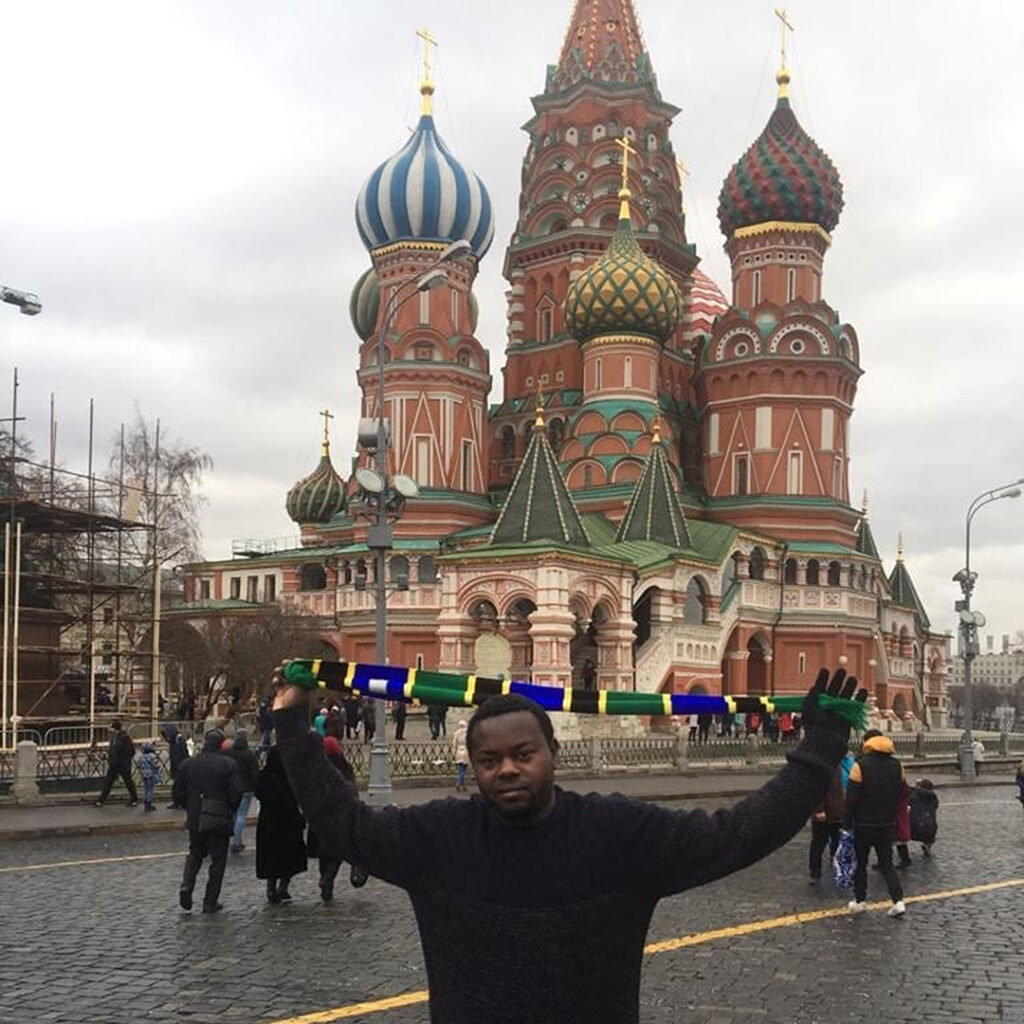ADF STAFF
Among a handful of prisoners of war captured in Ukraine after fighting for Russia, a young Somali man stood out. He said he joined the army to give his family a “good future,” and was told he would be a “helper” doing logistics and first aid.
He did not expect to be sent to the front lines.
“I didn’t know that I would be in the first line,” the unidentified man said during a news conference in Kyiv on March 15. “I was just dropped there without … knowing the language.”
Another man from Sierra Leone wiped tears as he explained how he paid a recruiter and flew to Russia for a “good job” to support his large family, but was tricked into joining the military.
A security guard, the man said he realized after signing Russian-language paperwork that he had enlisted in the army.
The term “meat grinder” has been used to describe Russia’s tactics in its war on neighboring Ukraine. In recent months, Russia reportedly has lost as many as 1,000 troops a day, recklessly sending some forces on high-casualty, human-wave attacks. In need of tens of thousands of new recruits per month, Moscow has resorted to forcing thousands of African students, migrants and prisoners to fight alongside Russian troops, according to European officials and members of the international intelligence community.
“Using tactics first deployed by the Wagner mercenary group, Russian officials have with increasing frequency been threatening not to extend the visas of African students and young workers unless they agree to join the military,” Bloomberg reported on June 8.
Some Africans in Russia on work visas have been detained and forced to choose between deportation or fighting. The Kremlin has also increasingly looked to its prison population for recruiting.
Some Africans were able to bribe officials to avoid military service and stay in the country, according to a European official, who spoke to Bloomberg on the condition of anonymity.
“Those troops suffer especially high casualty rates, because they are increasingly deployed in risky offensive maneuvers to protect more highly trained units,” the report stated. Russia also has increased its recruitment efforts on the continent, luring unemployed Africans. A report by Ukraine’s Defence Intelligence (HUR) said that Moscow’s global recruitment drive encompasses at least 21 countries, including several in Africa.
“Recruitment efforts focus on the central African countries of Rwanda, Burundi, Congo and Uganda,” HUR said on May 28. “Russia is reportedly offering a sign-up bonus of $2,000, monthly pay of $2,200 and the promise of a Russian passport. With Russia’s finite pool of convict recruitment likely culminated, Russia is likely expanding its recruitment across the global south, to avoid additional mobilizations within Russia itself.”
Russia’s Africa Corps mercenaries, formerly known as the Wagner Group, are conducting training on the African continent with young men, some from tribal militias. The rebranded group, now under the Ministry of Defense’s direct control, also has increased outreach to African students.
Between 35,000 and 37,000 men and women from the continent are studying in Russia through various scholarship schemes, according to British online newspaper The Independent. The figures are expected to increase further with the Kremlin’s recent diplomatic offensive in parts of Africa.
One senior European official, who had been based in Mali and Niger, said that after a period of low-level recruitment in Africa, there has been “quite a noticeable uptake as Russia has begun to expand its presence in the Sahel and bits of central Africa.”
“It has become more difficult to track Russian activity as our presence has faded,” he told The Independent. “Now we hear of local officials helping in the [recruitment] process. The money being offered is very good by local standards and tempting for young men from areas which are very poor.
“Some of those who have joined have some experience with various armed groups, but that is very different, of course, from the war in Ukraine with the use of modern weapons. Lots of these men who actually get deployed will probably end up dead.”

